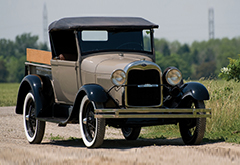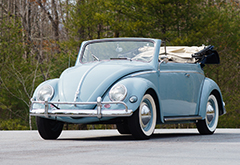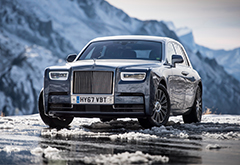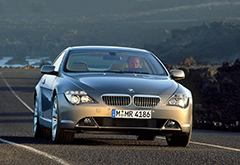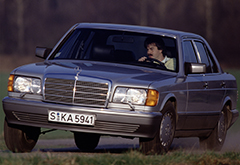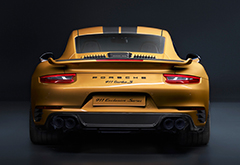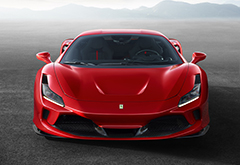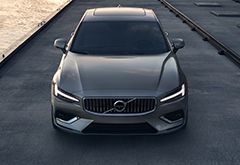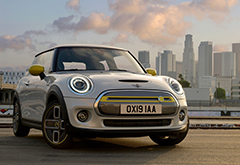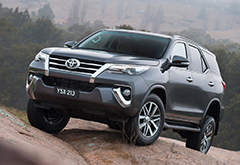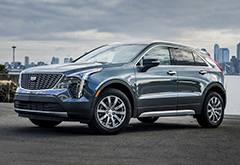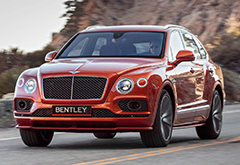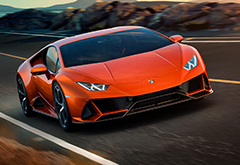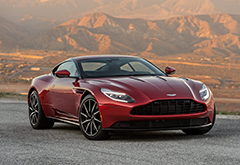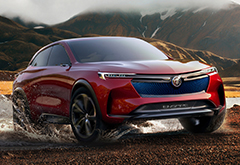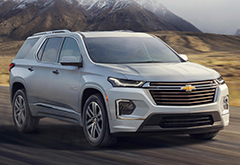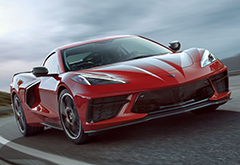1. Car History:
A car (automobile) is a wheeled motor vehicle used for transportation. Most definitions of cars say that they run primarily on roads, seat one to eight people, have four tires, and mainly transport people rather than goods. Cars came into global use during the 20th century, and developed economies depend on them. The year 1886 is regarded as the birth year of the modern car when German inventor Karl Benz patented his Benz Patent-Motorwagen. Cars became widely available in the early 20th century. One of the first cars accessible to the masses was the 1908 Model T, an American car manufactured by the Ford Motor Company. More details
2. Volkswagen Beetle:
The Volkswagen Beetle officially the Volkswagen Type 1, and known by many other nicknames in other languages—is a two-door, rear-engine economy car, intended for five occupants (later, Beetles were restricted to four people in some countries), that was manufactured and marketed by German automaker Volkswagen (VW) from 1938 until 2003. The need for a people's car (Volkswagen in German, and in the English-speaking world in the early 20th century as "folks' wagon"), its concept and its functional objectives were formulated by the leader of Nazi Germany, Adolf Hitler, who wanted a cheap, simple car to be mass-produced for his country's new road network. More details
3. Land Rover History:
Land Rover is a British brand of four-wheel drive cars that exclusively offers premium and luxury sport utility vehicles. Owned by multinational car manufacturer Jaguar Land Rover (JLR), which has been owned by India's Tata Motors since 2008, JLR currently build Land Rovers in Brazil, China, India, Slovakia, and the United Kingdom. The Land Rover name was originally used by the Rover Company for a boxy four-wheel drive, off-road model, launched in 1948—now known as the Land Rover Series. It was granted a Royal Warrant by King George VI in 1951, and 50 years later, in 2001, it received a Queen's Award for Enterprise for outstanding contribution to international trade. More details
The Volkswagen Beetle officially the Volkswagen Type 1, and known by many other nicknames in other languages—is a two-door, rear-engine economy car, intended for five occupants (later, Beetles were restricted to four people in some countries), that was manufactured and marketed by German automaker Volkswagen (VW) from 1938 until 2003. The need for a people's car (Volkswagen in German, and in the English-speaking world in the early 20th century as "folks' wagon"), its concept and its functional objectives were formulated by the leader of Nazi Germany, Adolf Hitler, who wanted a cheap, simple car to be mass-produced for his country's new road network. More details
Land Rover is a British brand of four-wheel drive cars that exclusively offers premium and luxury sport utility vehicles. Owned by multinational car manufacturer Jaguar Land Rover (JLR), which has been owned by India's Tata Motors since 2008, JLR currently build Land Rovers in Brazil, China, India, Slovakia, and the United Kingdom. The Land Rover name was originally used by the Rover Company for a boxy four-wheel drive, off-road model, launched in 1948—now known as the Land Rover Series. It was granted a Royal Warrant by King George VI in 1951, and 50 years later, in 2001, it received a Queen's Award for Enterprise for outstanding contribution to international trade. More details
4. Rolls Royce History:
Rolls-Royce Motor Cars Limited is a British luxury automobile maker. A wholly owned subsidiary of German group BMW, it was established in 1998 after BMW was licensed the rights to the Rolls-Royce brand name and logo from Rolls-Royce plc and acquired the rights to the Spirit of Ecstasy and Rolls-Royce grill shape trademarks from Volkswagen AG. Rolls-Royce Motor Cars Limited operates from purpose-built administrative and production facilities opened in 2003 across from the historic Goodwood Circuit in Goodwood, West Sussex, England, United Kingdom. Rolls-Royce Motors Cars Limited is the exclusive manufacturer of Rolls-Royce branded motor cars since 2003. More details
Rolls-Royce Motor Cars Limited is a British luxury automobile maker. A wholly owned subsidiary of German group BMW, it was established in 1998 after BMW was licensed the rights to the Rolls-Royce brand name and logo from Rolls-Royce plc and acquired the rights to the Spirit of Ecstasy and Rolls-Royce grill shape trademarks from Volkswagen AG. Rolls-Royce Motor Cars Limited operates from purpose-built administrative and production facilities opened in 2003 across from the historic Goodwood Circuit in Goodwood, West Sussex, England, United Kingdom. Rolls-Royce Motors Cars Limited is the exclusive manufacturer of Rolls-Royce branded motor cars since 2003. More details
5. BMW History:
BMW (Bayerische Motoren Werke AG), is a German multinational company which produces luxury vehicles and motorcycles. The company was founded in 1916 as a manufacturer of aircraft engines, which it produced from 1917 until 1918 and again from 1933 to 1945. Automobiles are marketed under the brands BMW, Mini and Rolls-Royce, and motorcycles are marketed under the brand BMW Motorrad. In 2015, BMW was the world's twelfth-largest producer of motor vehicles, with 2,279,503 vehicles produced. BMW is headquartered in Munich and produces motor vehicles in Germany, Brazil, China, India, South Africa, the United Kingdom, the United States and Mexico. More details
6. Mercedes Benz History:
Mercedes-Benz is a German global automobile marque and a division of Daimler AG. Mercedes-Benz is known for luxury vehicles, vans, trucks, buses, coaches and ambulances. The headquarters is in Stuttgart, Baden-Württemberg. The name first appeared in 1926 under Daimler-Benz. In 2018, Mercedes-Benz was the largest seller of premium vehicles in the world, having sold 2.31 million passenger cars. Mercedes-Benz origins' come from Daimler-Motoren-Gesellschaft's 1901 Mercedes and Karl Benz's 1886 Benz Patent-Motorwagen, which is widely regarded as the first internal combustion engine in a self-propelled automobile. More details
Mercedes-Benz is a German global automobile marque and a division of Daimler AG. Mercedes-Benz is known for luxury vehicles, vans, trucks, buses, coaches and ambulances. The headquarters is in Stuttgart, Baden-Württemberg. The name first appeared in 1926 under Daimler-Benz. In 2018, Mercedes-Benz was the largest seller of premium vehicles in the world, having sold 2.31 million passenger cars. Mercedes-Benz origins' come from Daimler-Motoren-Gesellschaft's 1901 Mercedes and Karl Benz's 1886 Benz Patent-Motorwagen, which is widely regarded as the first internal combustion engine in a self-propelled automobile. More details
7. Porsche History:
Porsche AG is a German automobile manufacturer specializing in high-performance sports cars, SUVs and sedans. The headquarters of Porsche AG is in Stuttgart, and is owned by Volkswagen AG, a controlling stake of which is owned by Porsche Automobil Holding SE. Porsche's current lineup includes the 718 Boxster/Cayman, 911, Panamera, Macan, Cayenne and Taycan. Ferdinand Porsche founded the company called "Dr. Ing. h. c. F. Porsche GmbH" in 1931, with main offices at Kronenstraße 24 in the centre of Stuttgart. Initially, the company offered motor vehicle development work and consulting, but did not build any cars under its own name. More details
8. Ferrari History:
Ferrari is an Italian-Dutch luxury sports car manufacturer based in Maranello. Founded by Enzo Ferrari in 1939 out of Alfa Romeo's race division as Auto Avio Costruzioni, the company built its first car in 1940. However, the company's inception as an auto manufacturer is usually recognized in 1947, when the first Ferrari-badged car was completed. In 2014 Ferrari was rated the world's most powerful brand by Brand Finance. In June 2018, the 1963 250 GTO became the most expensive car in history, setting an all-time record selling price of $70 million. Fiat S.p.A. acquired 50% of Ferrari in 1969 and expanded its stake to 90% in 1988. More details
Ferrari is an Italian-Dutch luxury sports car manufacturer based in Maranello. Founded by Enzo Ferrari in 1939 out of Alfa Romeo's race division as Auto Avio Costruzioni, the company built its first car in 1940. However, the company's inception as an auto manufacturer is usually recognized in 1947, when the first Ferrari-badged car was completed. In 2014 Ferrari was rated the world's most powerful brand by Brand Finance. In June 2018, the 1963 250 GTO became the most expensive car in history, setting an all-time record selling price of $70 million. Fiat S.p.A. acquired 50% of Ferrari in 1969 and expanded its stake to 90% in 1988. More details
9. Bugatti History:
Automobiles Ettore Bugatti was a French car manufacturer of high-performance automobiles, founded in 1909 in the then-German city of Molsheim, Alsace by the Italian-born industrial designer Ettore Bugatti. The cars were known for their design beauty and for their many race victories. Famous Bugattis include the Type 35 Grand Prix cars, the Type 41 "Royale", the Type 57 "Atlantic" and the Type 55 sports car. The death of Ettore Bugatti in 1947 proved to be the end for the marque, and the death of his son Jean Bugatti in 1939 ensured there was not a successor to lead the factory. No more than about 8,000 cars were made. More details
Automobiles Ettore Bugatti was a French car manufacturer of high-performance automobiles, founded in 1909 in the then-German city of Molsheim, Alsace by the Italian-born industrial designer Ettore Bugatti. The cars were known for their design beauty and for their many race victories. Famous Bugattis include the Type 35 Grand Prix cars, the Type 41 "Royale", the Type 57 "Atlantic" and the Type 55 sports car. The death of Ettore Bugatti in 1947 proved to be the end for the marque, and the death of his son Jean Bugatti in 1939 ensured there was not a successor to lead the factory. No more than about 8,000 cars were made. More details
10. Volvo History:
Volvo Cars is a Swedish luxury automobile marque. It is headquartered in Torslanda in Gothenburg, Sweden. The company manufactures and markets sport utility vehicles (SUVs), station wagons, sedans and compact executive sedans. The Volvo Group was founded in 1927 as a subsidiary of the ball bearing manufacturer SKF. When AB Volvo was introduced on the Stockholm stock exchange in 1935, SKF sold most of its shares in the company. Its cars are marketed as being safe, solidly built and reliable while emphasizing on their Swedish heritage and design. The heavy truck and construction equipment conglomerate AB Volvo and Volvo Cars have been independent companies. More details
Volvo Cars is a Swedish luxury automobile marque. It is headquartered in Torslanda in Gothenburg, Sweden. The company manufactures and markets sport utility vehicles (SUVs), station wagons, sedans and compact executive sedans. The Volvo Group was founded in 1927 as a subsidiary of the ball bearing manufacturer SKF. When AB Volvo was introduced on the Stockholm stock exchange in 1935, SKF sold most of its shares in the company. Its cars are marketed as being safe, solidly built and reliable while emphasizing on their Swedish heritage and design. The heavy truck and construction equipment conglomerate AB Volvo and Volvo Cars have been independent companies. More details
11. Alfa Romeo History:
Alfa Romeo Automobiles S.p.A. is an Italian premium car manufacturer, was founded on 24 June 1910, as "Anonima Lombarda Fabbrica Automobili", and so the acronym for it is "A.L.F.A", in Milano, Italy. "Anonima" means "anonymous", and it was a legal form of company at the time, as it was founded by anonymous investors. In the initial set-up phase, in order to have a building to produce cars, the company bought the factory building of Darraq french company in Milan, which was closing up and selling all assets because it was going to fail. The brand is known for sporty vehicles and has been involved in car racing since 1911. More details
Alfa Romeo Automobiles S.p.A. is an Italian premium car manufacturer, was founded on 24 June 1910, as "Anonima Lombarda Fabbrica Automobili", and so the acronym for it is "A.L.F.A", in Milano, Italy. "Anonima" means "anonymous", and it was a legal form of company at the time, as it was founded by anonymous investors. In the initial set-up phase, in order to have a building to produce cars, the company bought the factory building of Darraq french company in Milan, which was closing up and selling all assets because it was going to fail. The brand is known for sporty vehicles and has been involved in car racing since 1911. More details
12. Mini History:
The Mini is a small economy car produced by the English-based British Motor Corporation (BMC) and its successors from 1959 until 2000. The original is considered an icon of 1960s British popular culture. Its space-saving transverse engine and front-wheel drive layout influenced a generation of car makers. In 1999, the Mini was voted the second-most influential car of the 20th century, behind the Ford Model T, and ahead of the Citroën DS and Volkswagen Beetle. The front-wheel-drive, transverse-engine layout of the Mini was copied for other "supermini" designs including the Honda N360 (1967), Nissan Cherry (1970), and Fiat 127 (1971). More details
The Mini is a small economy car produced by the English-based British Motor Corporation (BMC) and its successors from 1959 until 2000. The original is considered an icon of 1960s British popular culture. Its space-saving transverse engine and front-wheel drive layout influenced a generation of car makers. In 1999, the Mini was voted the second-most influential car of the 20th century, behind the Ford Model T, and ahead of the Citroën DS and Volkswagen Beetle. The front-wheel-drive, transverse-engine layout of the Mini was copied for other "supermini" designs including the Honda N360 (1967), Nissan Cherry (1970), and Fiat 127 (1971). More details
13. Toyota History:
Toyota Motor Corporation is a Japanese multinational automotive manufacturer headquartered in Toyota, Aichi, Japan. In 2017, Toyota's corporate structure consisted of 364,445 employees worldwide and, as of December 2019, was the tenth-largest company in the world by revenue. Toyota is the largest automobile manufacturer in Japan, and the second-largest in the world behind Volkswagen, based on 2018 unit sales. Toyota was the world's first automobile manufacturer to produce more than 10 million vehicles per year, which it has done since 2012, when it also reported the production of its 200-millionth vehicle. More details
Toyota Motor Corporation is a Japanese multinational automotive manufacturer headquartered in Toyota, Aichi, Japan. In 2017, Toyota's corporate structure consisted of 364,445 employees worldwide and, as of December 2019, was the tenth-largest company in the world by revenue. Toyota is the largest automobile manufacturer in Japan, and the second-largest in the world behind Volkswagen, based on 2018 unit sales. Toyota was the world's first automobile manufacturer to produce more than 10 million vehicles per year, which it has done since 2012, when it also reported the production of its 200-millionth vehicle. More details
14. Cadillac History:
The Cadillac Motor Car Division is a division of the American automobile manufacturer General Motors Company (GM) that designs and builds luxury vehicles. Its major markets are the United States, Canada, and China. Cadillac models are distributed in 34 additional markets worldwide. Cadillac automobiles are at the top of the luxury field within the United States. In 2019, Cadillac sold 390,458 vehicles worldwide, a record for the brand. Cadillac is among the first automobile brands in the world, second in the United States only to fellow GM marque Buick. The firm was founded from the remnants of the Henry Ford Company in 1902. More details
The Cadillac Motor Car Division is a division of the American automobile manufacturer General Motors Company (GM) that designs and builds luxury vehicles. Its major markets are the United States, Canada, and China. Cadillac models are distributed in 34 additional markets worldwide. Cadillac automobiles are at the top of the luxury field within the United States. In 2019, Cadillac sold 390,458 vehicles worldwide, a record for the brand. Cadillac is among the first automobile brands in the world, second in the United States only to fellow GM marque Buick. The firm was founded from the remnants of the Henry Ford Company in 1902. More details
15. Bentley History:
Bentley Motors Limited is a British manufacturer and marketer of luxury cars and SUVs—and a subsidiary of the Volkswagen Group since 1998. Headquartered in Crewe, England, the company was founded as Bentley Motors Limited by W. O. Bentley in 1919 in Cricklewood, North London—and became widely known for winning the 24 Hours of Le Mans in 1924, 1927, 1928, 1929 and 1930. Prominent models extend from the historic sports-racing Bentley 4½ Litre and Bentley Speed Six; the more recent Bentley R Type Continental, Bentley Turbo R, and Bentley Arnage; to its current model line, including the Flying Spur, Continental GT, Bentayga and the Mulsanne. More details
Bentley Motors Limited is a British manufacturer and marketer of luxury cars and SUVs—and a subsidiary of the Volkswagen Group since 1998. Headquartered in Crewe, England, the company was founded as Bentley Motors Limited by W. O. Bentley in 1919 in Cricklewood, North London—and became widely known for winning the 24 Hours of Le Mans in 1924, 1927, 1928, 1929 and 1930. Prominent models extend from the historic sports-racing Bentley 4½ Litre and Bentley Speed Six; the more recent Bentley R Type Continental, Bentley Turbo R, and Bentley Arnage; to its current model line, including the Flying Spur, Continental GT, Bentayga and the Mulsanne. More details
16. Lamborghini History:
Automobili Lamborghini S.p.A. is an Italian brand and manufacturer of luxury sports cars and SUVs based in Sant'Agata Bolognese. The company is owned by the Volkswagen Group through its subsidiary Audi. Ferruccio Lamborghini, an Italian manufacturing magnate, founded Automobili Ferruccio Lamborghini S.p.A. in 1963 to compete with established marques, including Ferrari. The company was noted for using a rear mid-engine, rear-wheel drive. Lamborghini grew rapidly during its first decade, but sales plunged in the wake of the 1973 worldwide financial downturn and the oil crisis. The firm's ownership changed three times after 1973, including a bankruptcy in 1978. More details
Automobili Lamborghini S.p.A. is an Italian brand and manufacturer of luxury sports cars and SUVs based in Sant'Agata Bolognese. The company is owned by the Volkswagen Group through its subsidiary Audi. Ferruccio Lamborghini, an Italian manufacturing magnate, founded Automobili Ferruccio Lamborghini S.p.A. in 1963 to compete with established marques, including Ferrari. The company was noted for using a rear mid-engine, rear-wheel drive. Lamborghini grew rapidly during its first decade, but sales plunged in the wake of the 1973 worldwide financial downturn and the oil crisis. The firm's ownership changed three times after 1973, including a bankruptcy in 1978. More details
17. Aston Martin History:
Aston Martin Lagonda Global Holdings plc is a British independent manufacturer of luxury sports cars and grand tourers. It was founded in 1913 by Lionel Martin and Robert Bamford. Steered from 1947 by David Brown, it became associated with expensive grand touring cars in the 1950s and 1960s, and with the fictional character James Bond following his use of a DB5 model in the 1964 film Goldfinger. Their sports cars are regarded as a British cultural icon. Aston Martin has held a Royal Warrant as purveyor of motorcars to the Prince of Wales since 1982. It has over 150 car dealerships in over 50 countries on six continents, making them a global automobile brand. More details
Aston Martin Lagonda Global Holdings plc is a British independent manufacturer of luxury sports cars and grand tourers. It was founded in 1913 by Lionel Martin and Robert Bamford. Steered from 1947 by David Brown, it became associated with expensive grand touring cars in the 1950s and 1960s, and with the fictional character James Bond following his use of a DB5 model in the 1964 film Goldfinger. Their sports cars are regarded as a British cultural icon. Aston Martin has held a Royal Warrant as purveyor of motorcars to the Prince of Wales since 1982. It has over 150 car dealerships in over 50 countries on six continents, making them a global automobile brand. More details
18. Buick History:
Buick is a division of the American automobile manufacturer General Motors (GM). Named for automotive pioneer David Buick, it was among the first American marques of automobiles, and was the company that established General Motors in 1908. Before the establishment of General Motors, GM founder William C. Durant had served as Buick's general manager and major investor. Buick was the first production automobile maker in the world to equip its cars with overhead valve engines, which it did in the year 1904. For much of its existence in the North American market, Buick has been marketed as a premium automobile brand. More details
Buick is a division of the American automobile manufacturer General Motors (GM). Named for automotive pioneer David Buick, it was among the first American marques of automobiles, and was the company that established General Motors in 1908. Before the establishment of General Motors, GM founder William C. Durant had served as Buick's general manager and major investor. Buick was the first production automobile maker in the world to equip its cars with overhead valve engines, which it did in the year 1904. For much of its existence in the North American market, Buick has been marketed as a premium automobile brand. More details
19. Chevrolet History:
Chevrolet is an American automobile division of the American manufacturer General Motors (GM). Louis Chevrolet and ousted General Motors founder William C. Durant started the company on November 3, 1911 as the Chevrolet Motor Car Company. Durant used the Chevrolet Motor Car Company to acquire a controlling stake in General Motors with a reverse merger occurring on May 2, 1918, and propelled himself back to the GM presidency. After Durant's second ousting in 1919, Alfred Sloan, with his maxim "a car for every purse and purpose", would pick the Chevrolet brand to become the volume leader in the General Motors family. More details
Chevrolet is an American automobile division of the American manufacturer General Motors (GM). Louis Chevrolet and ousted General Motors founder William C. Durant started the company on November 3, 1911 as the Chevrolet Motor Car Company. Durant used the Chevrolet Motor Car Company to acquire a controlling stake in General Motors with a reverse merger occurring on May 2, 1918, and propelled himself back to the GM presidency. After Durant's second ousting in 1919, Alfred Sloan, with his maxim "a car for every purse and purpose", would pick the Chevrolet brand to become the volume leader in the General Motors family. More details
20. Corvette History:
The Chevrolet Corvette is a two-door, two-passenger sports car manufactured and marketed by Chevrolet across more than 60 years of production and eight design generations. From 1953 to 2019, it was front-engined, and since 2020, it is mid-engined. With its generations noted sequentially from C1 to C8, the Corvette serves as Chevrolet's halo vehicle and is widely noted for its performance and distinctive plastic—either fiberglass or composite bodywork. In 1953, when GM executives were looking to name the new Chevrolet sports car, assistant director for the Public Relations department Myron Scott suggested Corvette after the small maneuverable warship and the name was approved. More details
The Chevrolet Corvette is a two-door, two-passenger sports car manufactured and marketed by Chevrolet across more than 60 years of production and eight design generations. From 1953 to 2019, it was front-engined, and since 2020, it is mid-engined. With its generations noted sequentially from C1 to C8, the Corvette serves as Chevrolet's halo vehicle and is widely noted for its performance and distinctive plastic—either fiberglass or composite bodywork. In 1953, when GM executives were looking to name the new Chevrolet sports car, assistant director for the Public Relations department Myron Scott suggested Corvette after the small maneuverable warship and the name was approved. More details

